IN THE THIRD JUDICIAL CIRCUIT OF FLORIDA
Administrative Order No.
2012-002
IN RE:TRIAL COURT STAFF ATTORNEYS
WHEREAS, the Trial Court Staff Attorneys in the Third Judicial Circuit provide direct professional legal support for the Judges of this Circuit in all divisions; and
WHEREAS, a detailed and written policy regarding the duties, responsibilities and expectations of the Trial Court Staff Attorneys will promote the most efficient use of this judicial resource to assist the judges with the administration of justice;
IT IS, THEREFORE, ORDERED:
- CLASSIFICATION
Trial Court Staff Attorneys serve at the pleasure of the Chief Judge and are exempt from Career Service under Sec. 110.205, Florida Statutes.
- SUPERVISION
Trial Court Staff Attorneys shall answer directly to the Chief Judge, who may designate the General Magistrate of the Third Judicial Circuit, or other qualified Court Administration staff, for their direct supervision. Trial Court Staff Attorneys are professional peers with no supervisory authority over each other, except as designated by the Chief Judge.
- DUTIES
- All Trial Court Staff Attorneys – primary duties:
- . review, analyze and summarize active case files as needed;
- review, analyze and summarize post-conviction matters, as needed;
- All Trial Court Staff Attorneys – primary duties:
- conduct legal research using paper and electronic sources to determine the applicable current rules and law;
- draft legal opinion memoranda, as necessary;
- . assist judges with immediate research and legal analysis on matters arising during trial or a hearing; and
- draft suggested orders which incorporate the research and analysis of case files
- All Trial Court Staff Attorneys – secondary duties:
- coordinate work load priority
- assist in supervision and training of law-student interns
- complete other tasks assigned by the judges of this circuit which promote efficient court procedures
- LIMITATION OF DUTIES
- Clerical Work. Trial Court Staff Attorneys have no permanent fulltime clerical assistance and may rely on the assigning judge’s Judicial Assistant for clerical assistance in the processing of orders for distribution.
- Public Contact. Trial Court Staff Attorneys are prohibited from ex parte communications to the same extent as the judges. While Trial Court Staff Attorneys are public employees, providing legal research and opinions to the judges in this circuit is the substance of their work. Trial Court Staff Attorneys are prohibited from dispensing legal advice to the public or counsel. For security reasons, the Trial Court Staff Attorneys’ names and phone numbers shall not be provided to litigants or family members of litigants. Status calls regarding pending cases shall be referred to the Clerk of Court.
- ASSIGNMENTS
- Prioritization. Trial Court Staff Attorneys shall promptly handle assignments in the chronological order received, unless the matter demonstrates that the assignment must take priority over other assignments. Matters demonstrating a need for priority treatment include consultation with judges in trial or hearing, matters set for imminent hearing, habeas corpus petitions, domestic and repeat violence petitions, death penalty cases and directives from appellate courts. Conflicts in assignments which cannot be resolved by the Genera l Magistrate or other designated supervisor shall be resolved by the Chief Judge.
- Divisions. Trial Court Staff Attorneys shall be generally assigned as needed – one to Columbia County, one to Suwannee County and one to Hamilton, Madison, Taylor, Lafayette and Dixie Counties. These divisions do not preclude assignment of any matter in any county to any Trial Court Staff Attorney.
- Records and Distribution. The General Magistrate, or other designated supervisor, is responsible for maintaining an efficient distribution of the workload, to provide the highest quality of work in the shortest response time. Trial Court Staff Attorneys are responsible for keeping records of their assignments and alerting the General Magistrate or other designated supervisor if redistribution of work appears necessary in order to timely or efficiently complete assignments.
- Reporting. A monthly report shall be distributed to the Chief Judge of the work product of the Trial Court Staff Attorneys and a separate report will be distributed to each judge reflecting that judge’s assignments.
- ETHICS AND CONFIDENTIALITY
- Trial Court Staff Attorneys are bound by the Florida Rules of Professional Conduct – Rules Regulating the Florida Bar, Chapter 4, and the Code of Judicial Conduct. The “client” for a Trial Court Staff Attorney is the assigning judge. Trial Court Staff Attorneys may not engage in communications with litigants or their counsel, or any party, regarding a pending case. Trial Court Staff Attorneys may not disclose confidential communications between the staff attorney and a judge.
- Trial Court Staff Attorneys shall be familiar with the Florida Rules of Judicial Administration and shall adhere to all of the applicable provisions.
- All memoranda, draft opinions and proposed orders and notes from Trial Court Staff Attorneys to judges are confidential work product and shall not be filed as part of the court record or otherwise made public, unless exceptional circumstances exist as determined by the presiding judge
DONE AND ORDERED 16th day of February, 2012.
Sondra Lanier, Trial Court Administrator
Debbie DeNike, General Magistrate
Trial Court Staff Attorneys

